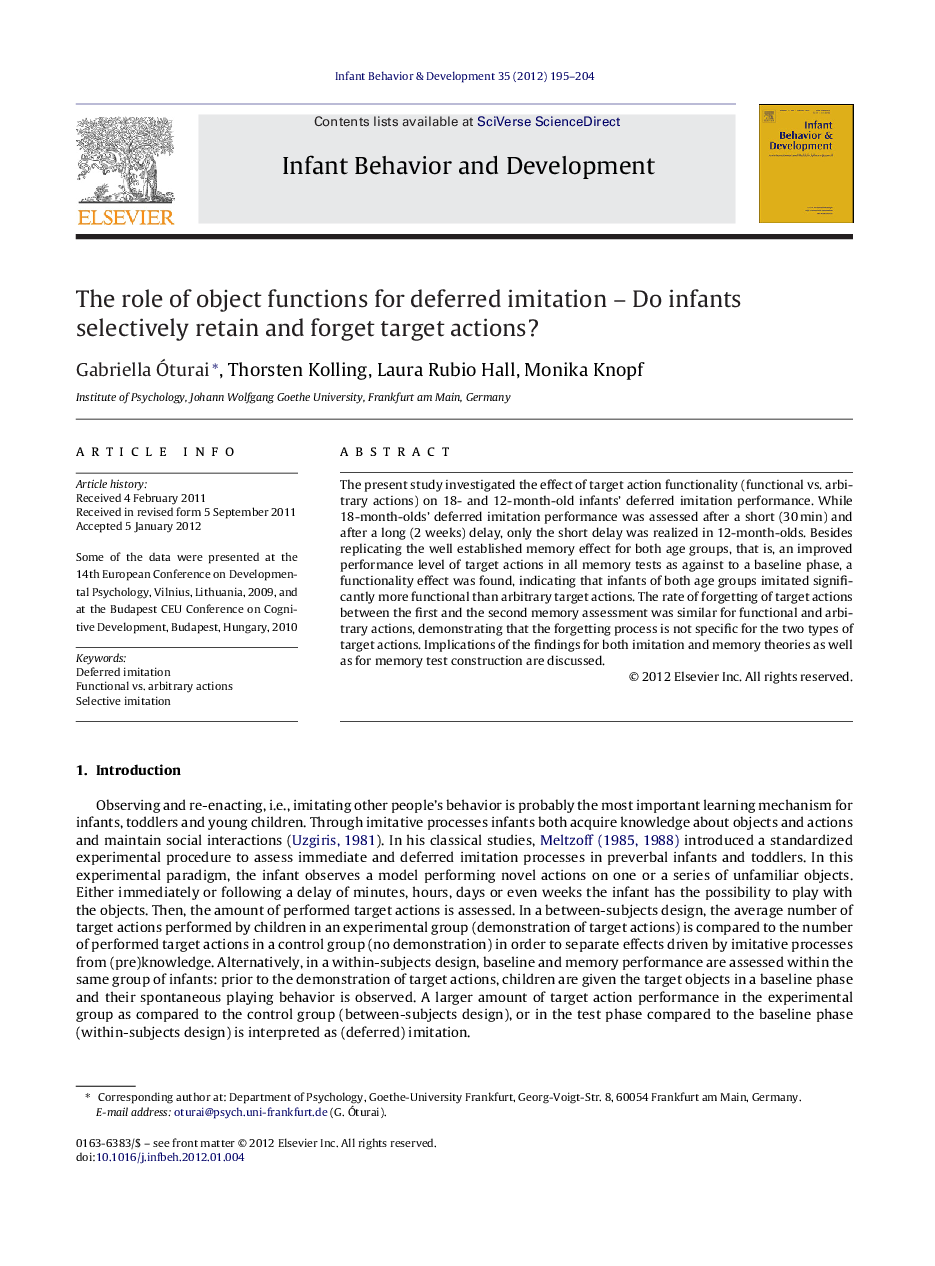| Article ID | Journal | Published Year | Pages | File Type |
|---|---|---|---|---|
| 917442 | Infant Behavior and Development | 2012 | 10 Pages |
The present study investigated the effect of target action functionality (functional vs. arbitrary actions) on 18- and 12-month-old infants’ deferred imitation performance. While 18-month-olds’ deferred imitation performance was assessed after a short (30 min) and after a long (2 weeks) delay, only the short delay was realized in 12-month-olds. Besides replicating the well established memory effect for both age groups, that is, an improved performance level of target actions in all memory tests as against to a baseline phase, a functionality effect was found, indicating that infants of both age groups imitated significantly more functional than arbitrary target actions. The rate of forgetting of target actions between the first and the second memory assessment was similar for functional and arbitrary actions, demonstrating that the forgetting process is not specific for the two types of target actions. Implications of the findings for both imitation and memory theories as well as for memory test construction are discussed.
► We tested the effects of action functionality and delay length on deferred imitation. ► Both 12- and 18-month-olds imitated more functional than arbitrary actions. ► 12-month-olds only imitated functional actions, showing selective imitation. ► 18-month-olds imitated more functional, but also some arbitrary actions. ► The forgetting rate of functional vs. arbitrary actions did not differ.
